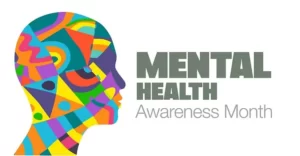We would like to share our approach to neurodiversity affirmative care.
Supporting Autism begins with understanding that every person’s brain, whether neurotypical or neurodivergent, is unique, with both strengths and vulnerabilities. Supporting Autism involves seeking out those areas in which someone already excels, and offering personalized support for areas in which that individual struggles. It is also important to recognize that individuals do not necessarily require treatment just because they are Autistic, and there is no “one size fits all” approach. Our office provides autism support through a neurodiversity-affirmative lens, which allows us to focus on the whole person. We offer support to individuals as they work to embrace who they are. Such individuals, with the active participation of their family and/or support system, choose the support they want, and zero in on strengths to aid positive growth and desired change.
Listening
Autism is one form of neurodivergence. When an autistic patient comes to our practice, we have a variety of supports that we can offer. However, the first step is to listen. We seek to understand what concerns are leading the person—or, in the case of children, the parents—to seek our support. We want to learn about patients. What are their interests? What are their strengths? How are they doing emotionally? In what ways are they struggling? Are the concerns that have brought them to our practice those of the patient, the family, or both? Once we’ve gained a better understanding of the situation, we can identify the best ways to offer help and guidance.
Support Patients for Who They Are
In many cases, we begin with psychoeducation. We help patients and families move away from such labels as high-functioning or low-functioning, and towards recognizing the individual as a whole person. Each patient has unique strengths, vulnerabilities, and support needs. Each person is deserving of autonomy, respect, and a presumption of competence. We seek to help families and patients communicate in ways that support the patients for who they are, rather than seeking to change them to appear and act in more neurotypical ways. We educate patients and families about ableism, which is discrimination or prejudice against individuals with disabilities, and we help them begin to embrace the neurodiversity within their own unique family unit. We often suggest resources that teach families to look for the reasons behind behaviors, such as emotional dysregulation, sensory processing differences, unmet needs, undeveloped skills, and environmental factors. This might include work by doctors like Ross Greene, Dan Siegel and Tina Payne Bryson, or Mona Delahooke. Additionally, a critical part of embracing and understanding Autism involves learning from, and listening to, the autistic community. Some outstanding resources for parents and professionals featuring Autistic voices include AUsome Autism Training, Autism Level Up Academy, Neuroclastic, the Autistic Self-Advocacy Network, and books by autistic authors, such as Naoki Higashida’s The Reason I Jump.
Collaborate
As we work with autistic patients, along with offering suSupportive and affirming therapy, testing, neuromodulation, and psychiatry, we may provide outside referrals. For example, patients who feel overwhelmed by sensory stimuli at school or at work might be referred to a neurodiversity-affirmative occupational therapist to support their areas of discomfort so that they can find equilibrium. Autistic individuals experiencing speech or language vulnerabilities, including those who may be non-speaking, will be referred to a speech-language pathologist that can help patients communicate in a way that is comfortable and effective for them, such as through body language or assistive technology.
To Learn More about our services please visit https://wbma.cc or email [email protected]
This information was originally published in our article in Autism Advocate magazine.

















